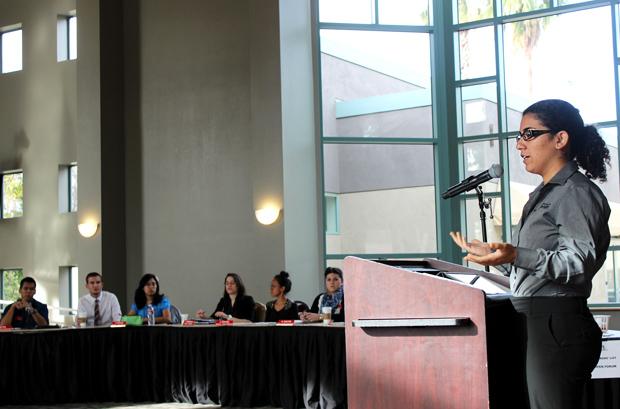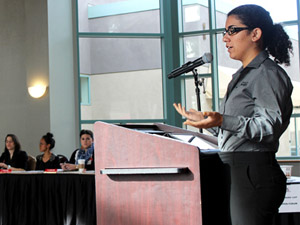
Associated Students (A.S.) allocated money to three different organizations during Monday’s meeting.
They allocated $1,025 to Pi Kappa Phi for their “War of Roses” event. According to Pi Kappa Phi’s website, this event is a weeklong competition between all of the sororities on campus, with a winner crowned in the end.
A.S. also allocated $545 to the Kinesiology Majors Club for their KMC 5k/10k Halloween Costume Run where students can have fun with their costumes and participate in a run. This event will take place on Saturday, Oct. 26, on campus between Zelzah and Prairie.
The third cause they allocated money to was for renovating the A.S. Student Leadership’s activities coordinating office. The amount given for the renovations was $3,172 coming from Capital Improvement. These renovations will allow more private working quarters for A.S. leadership to prevent walk-ins from distracting the members during work hours.
In other news, A.S. was brought up to speed on the issue of bottleneck courses by Vice.
President Talar Alexanian. She made a PowerPoint presentation discussing the issue and making sure that the issue was well understood by cabinet members.
Bottlenecks, as described by Alexanian, are anything that may delay or prohibit a student from graduating at the expected time.
There are four bottleneck issues related to the CSU system. The first is student readiness and curriculum. This means that a student may enroll in a class that they are just not prepared for and that may result in a failing grade.
“When it comes time for next semester when there are students who did not pass that class and are trying to take it again, there will also be new students who need that class in order to graduate, ” Alexanian said.
The second is called placebound bottlenecks. This refers to a class that students may need but is not available to them for a particular amount of time. Facilities is the third bottleneck and this is dealing with the lack of space on campus which results in not having enough classes available for students to enroll in.
The last bottleneck is advising and scheduling. This is when students don’t receive enough advisement or advice in order to help them work up to graduate on time.
There are a few methods available to help CSU’s tackle these issues such as course redesign, eAcademy, Intrasystem Concurrent Enrollment and creating virtual labs for STEM courses and eAdvising.
A survey was presented that showed 100 and 300 level courses are the most in need of more staff members. The greatest numbers of courses in need are STEM, liberal arts and health and human services.
According to Alexanian’s presentation, the number one reason bottlenecking is occurring is because the CSU system does not have have enough funding for tenure tracks or part-time faculty in order to teach these courses. The total amount for CSU funding is $125.1 million in the 2013-14 semesters.
In addition to this news, Alexanian discussed some of CSUN’s campus planning which includes the renovation of the USU Wellness Center that will now include nap rooms, new signs and a revamped elevator among other things.
Also during the meeting, A.S. member Jesus Martinez-Ramirez, gave a friendly reminder about the dismount zones on campus.
According to Martinez-Ramirez the campus police department is cracking down and are now giving out tickets up to $150 for those who don’t abide by the rules. The rules don’t only apply for those on wheels. They also apply to pedestrians as well.
“Make sure you’re walking on the right side,” said Martinez-Ramirez.






